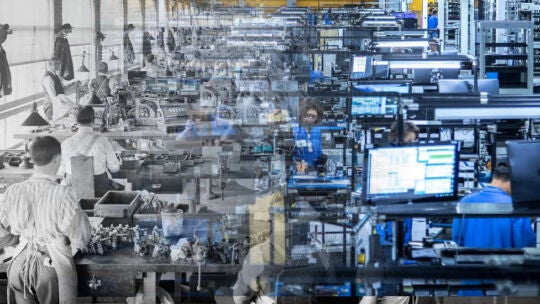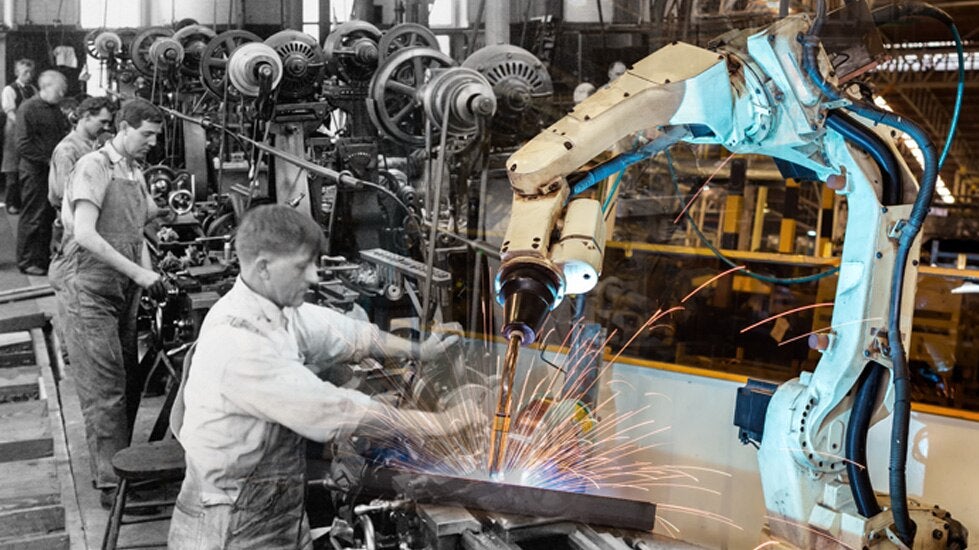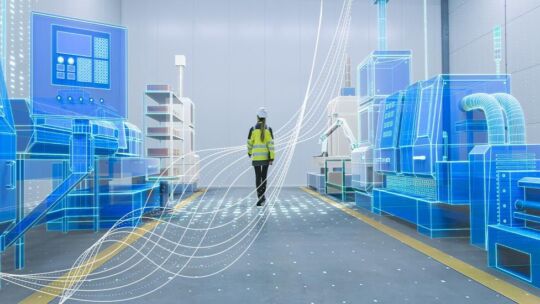
Last month, I sat down with my colleague, Kyra Whitten*, Flex Senior Vice President of Sustainability and President of the Flex Foundation, for a Manufacturing Day webinar about the state of our industry and where we’re headed. During our discussion, we covered a wide range of topics, including how Industry 4.0 technologies are driving innovation, the importance of sustainability in modern manufacturing, and some of the exciting career pathways available within our ever-evolving industry.

Kyra and I were both grateful to see so many of you attend and participate by asking questions. Though we had limited time during the live webinar, we wanted to make sure that we followed up and provided answers to some of your excellent questions.
What are some examples of technologies that will be used in the factories of the future?
We are experiencing a manufacturing Renaissance with many technological advancements and new business models that are shaping the industry’s transformation, but three specific areas stand out:
- The digitization of supply chains and manufacturing sites uses digital tools and visualized data to evaluate, manage, and make informed decisions on supply chains and manufacturing operations.
- The use of automation and robotics in production floor processes optimizes the production of products through the automation of repetitive tasks and activities that are difficult for humans due to physical constraints.
- The implementation of simulation and digital twins simulates the production process and product lifecycle to enable better prediction and planning of manufacturing lines.
Investing in these three technologies is instrumental in driving a new era of manufacturing.
As the manufacturing industry undergoes a transformation, how is Flex reducing the embedded carbon in its products?
As a diversified manufacturer, Flex designs and builds a broad range of our customers’ products, spanning the automotive, medical, industrial, lifestyle, cloud, and communications industries.
Even though we do not build our own Flex-branded products, we still embed sustainable manufacturing and operations practices in everything we do.
Minimizing our environmental impact is a part of our company’s mission and recently, we doubled down on our climate action efforts by committing to reaching net zero greenhouse gas emissions by 2040.
To that end, we take a multi-pronged emissions reduction approach to support our net zero ambition. This includes investing in site and system efficiencies, procuring and deploying renewable energy and continuing collaboration with our ecosystem of customers and suppliers to develop and implement energy and emissions reduction strategies.
How do you engage and motivate employees through the process of implementing advanced technologies and moving toward the future of manufacturing?
At Flex, we are a company of people — 170,000 total in 30 countries. We believe that employee development and engagement are critical to our growth and success as a company. We prioritize ongoing upskilling and reskilling so that our people feel comfortable and empowered with the new technologies, processes, and roles that are introduced as we transform our factories.
Ultimately, we understand that nurturing an inclusive, high-performing culture is a crucial element of being a successful, sustainable, and innovative global company. This requires that we invest in our people and provide the training they need for this next era of manufacturing.
What are the top technical skills required to support advanced manufacturing and digital factories?
As factories transform and evolve, we will need more technically skilled workers who are facile with data and know how to keep advanced machinery running smoothly. In my opinion, the three job categories that are crucial for the factories of the future are:
- Automation technicians and engineers
- IT solution architects
- Data scientists
These three key disciplines enable us to connect the dots in a digital factory and take manufacturing to the next level.
To ensure that workers have the skills needed to succeed in an era of advanced manufacturing, manufacturers must provide ongoing training and support. For example, at Flex we have the Capability Acceleration Program, which trains employees in the US and across the globe on a broad range of disciplines that will empower them to succeed in an Industry 4.0 manufacturing environment.
Do you need a specific degree or educational background to work in product design and manufacturing?
At Flex, we recognize that there is more to people than their academic credentials. Though some of our sites and customers have varying degrees of flexibility when it comes to job requirements, as an enterprise, we have been transitioning to skills-based hiring.
This means that, when possible, we have removed degree-based requirements and are more interested in the whole person and what makes a candidate a great fit for a job. If you are excited about a role at Flex, we encourage you to apply.
In my conversation with Kyra, we both expressed our excitement about modern manufacturing and the opportunities it presents for all of us. Let’s work together to make it the brightest future possible.
*Kyra Whitten is our former Senior Vice President of Sustainability and President of the Flex Foundation





